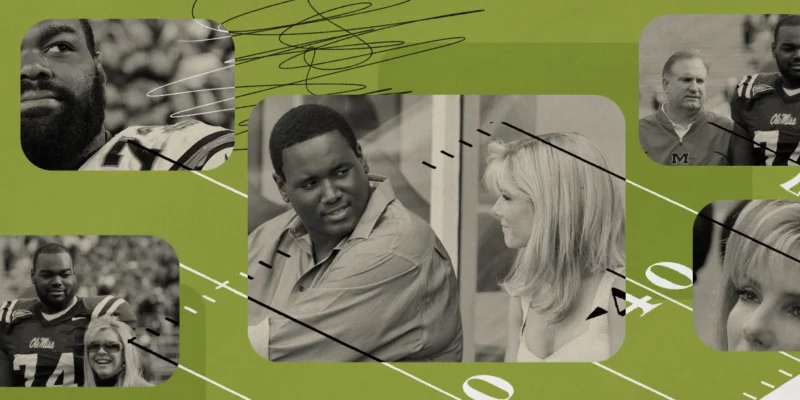Why Hollywood embraced white savior movies like ‘The Blind Side’
Share
Explore Our Galleries
Breaking News!
Today's news and culture by Black and other reporters in the Black and mainstream media.
Ways to Support ABHM?
By Char Adams, NBC
Former NFL star Michael Oher’s lawsuit against Leigh Anne and Sean Tuohy has only bolstered the criticism of white savior films.

The legal battle between former NFL star Michael Oher and the white Tennessee family who took him in, as portrayed in the fictionalization of their lives in the 2009 movie “The Blind Side,” has renewed conversations about a common film trope: the white savior.
When “The Blind Side” hit theaters, it was hailed as both a true story steeped in “goodness” and criticized as racism cloaked in a tale about benevolent white people. Now, as Oher claims that Leigh Anne and Sean Tuohy misled him and used him for fame and fortune, experts are pointing to the allegations as real-life consequences of white savior films.
“The fact that this lawsuit is even being talked about is reflective of the central place white savior narratives have in our culture,” said Matthew Hughey, a sociologist and the author of “The White Savior Film.”
Oher filed a petition with a Tennessee court on Monday to end a conservatorship that he alleges the Tuohys tricked him into under the guise of adoption. He has been under the conservatorship since he turned 18, and now, at 37, he said he had only recently learned that the arrangement does not create familial ties. He alleges the Tuohy family made hundreds of thousands of dollars as part of the deal they negotiated for his life story, while he was paid nothing.
Read more about the white savior complex. Learn how white Americans can be true allies.
Don’t forget to stop by our breaking news section.









Comments Are Welcome
Note: We moderate submissions in order to create a space for meaningful dialogue, a space where museum visitors – adults and youth –– can exchange informed, thoughtful, and relevant comments that add value to our exhibits.
Racial slurs, personal attacks, obscenity, profanity, and SHOUTING do not meet the above standard. Such comments are posted in the exhibit Hateful Speech. Commercial promotions, impersonations, and incoherent comments likewise fail to meet our goals, so will not be posted. Submissions longer than 120 words will be shortened.
See our full Comments Policy here.